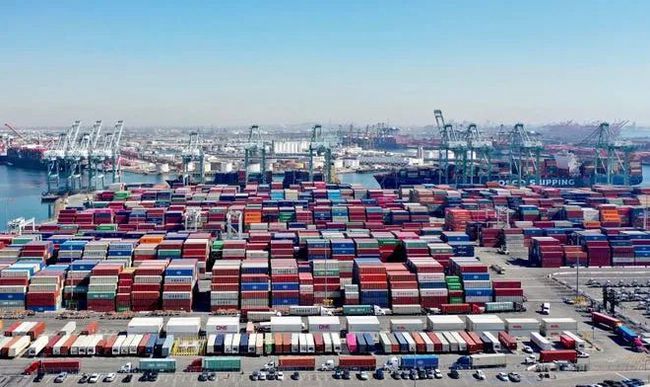French newspaper Les Echos published an article on October 18 entitled "Why the Global logistics Crisis Will Continue" by Denis Van Silbey. The full text is reproduced below:
Some ships are docked offshore and wait up to a week to be unloaded. Freight prices have risen fourfold in 10 months, and nearly tenfold in some waterways. Many empty containers sit in ports waiting to be shipped back to Asia. Many companies have seen their output decline due to a lack of raw materials or components... For months, global logistics have been under strain, with all links jammed to varying degrees.

Anne-sophie Fribourg, an official at the French Federation of Transport and Logistics Enterprises, said: "Today, certain shipping routes are very busy and shipping companies have limited capacity to offer. This kind of scissor effect has never been seen before. "The problem has gone far beyond shipping. It has disrupted the whole logistics chain."
At the moment, many customers have to prepare their containers four to six weeks in advance, and then be prepared for big delays (typically a week on Asia-Europe routes) and horrendously high "discharge delay charges". That would surely drive up the retail prices of imported goods.
The only winners are the big shipping companies. The combined profits of shipping companies could reach $100 billion in 2021, up 15 times from 2019, according to Drury Shipping Consulting.
What is the solution to this dilemma? The solutions are not simple and will not work quickly. Shipping companies have not done nothing to increase capacity since the summer of 2020. Between June 2020 and June 2021, global container seaborne capacity increased by 4.06 percent, according to CMA CGM.
But even at full capacity, shipping companies cannot keep up with demand. Thanks to economic recovery in many parts of the world, global port throughput increased by 10% year on year. Some of the increased capacity has been artificially consumed by congestion at ports. "Shipping companies give orders to cargo ships, but they have to stop on the way," Fribourg explains. Ships are struggling to turn around as usual, with containers taking 20 per cent longer to turn around. As a result, 13 percent of available capacity is being artificially consumed because ships are not coming in and going out on time."

The congestion is due, above all, to a lack of manpower at the port. "It's hard to recruit porters, port operators or truck drivers," explains one industry insider. Those professions are affected by the pandemic."
Until this problem is solved, shipping companies will have to bypass the most congested ports, such as Los Angeles, Singapore and Rotterdam, in the hope of sending shipments to less congested ones, such as Le Havre or Dunkirk.
Some big retailers, such as Wal-mart in the United States or Ikea in Europe, are starting to hire their own ships to deliver holiday goods, fearing they won't get their orders in time. But this costly bail-out is unsustainable.




